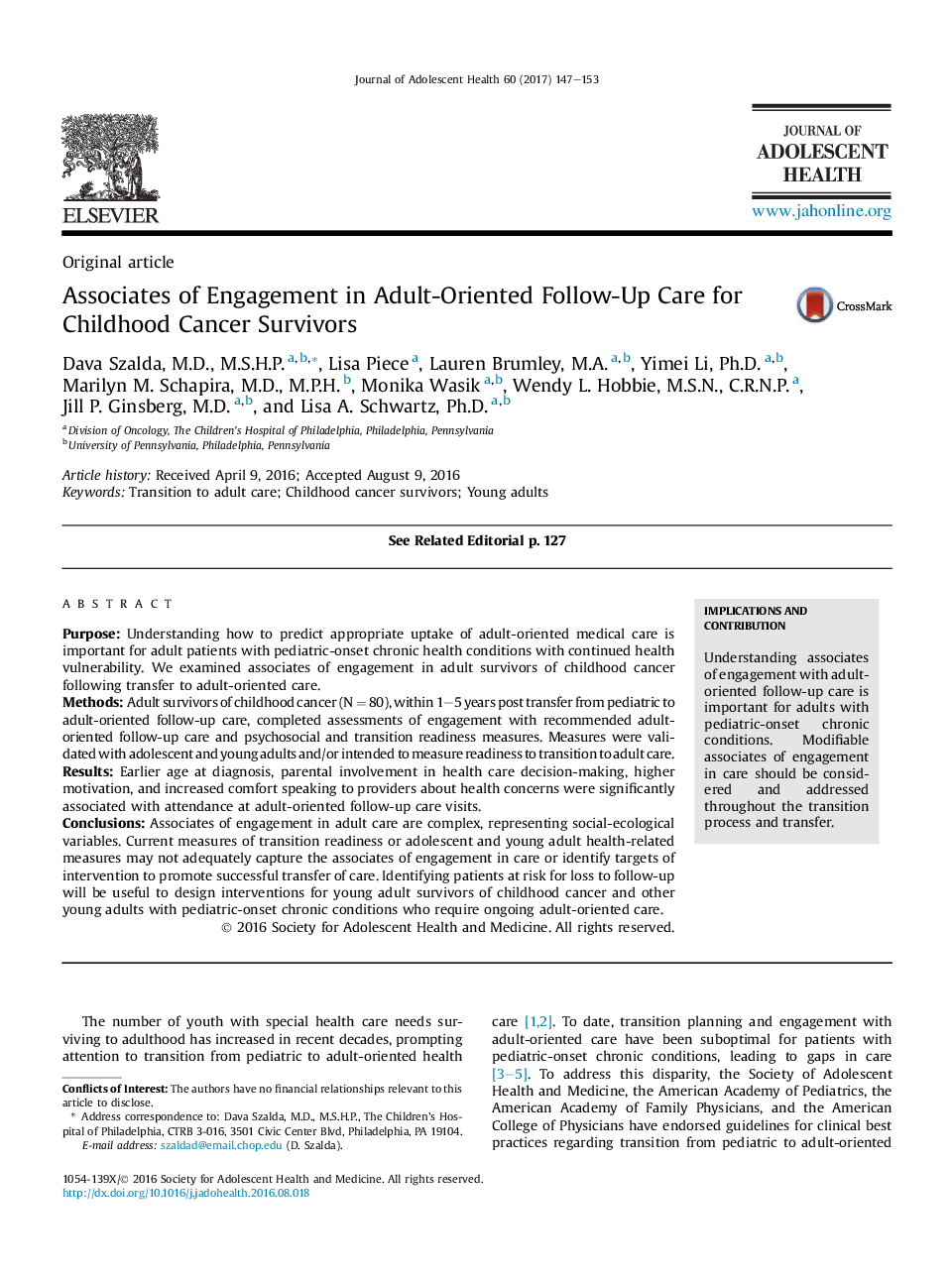| Article ID | Journal | Published Year | Pages | File Type |
|---|---|---|---|---|
| 5121388 | Journal of Adolescent Health | 2017 | 7 Pages |
PurposeUnderstanding how to predict appropriate uptake of adult-oriented medical care is important for adult patients with pediatric-onset chronic health conditions with continued health vulnerability. We examined associates of engagement in adult survivors of childhood cancer following transfer to adult-oriented care.MethodsAdult survivors of childhood cancer (NÂ = 80), within 1-5Â years post transfer from pediatric to adult-oriented follow-up care, completed assessments of engagement with recommended adult-oriented follow-up care and psychosocial and transition readiness measures. Measures were validated with adolescent and young adults and/or intended to measure readiness to transition to adult care.ResultsEarlier age at diagnosis, parental involvement in health care decision-making, higher motivation, and increased comfort speaking to providers about health concerns were significantly associated with attendance at adult-oriented follow-up care visits.ConclusionsAssociates of engagement in adult care are complex, representing social-ecological variables. Current measures of transition readiness or adolescent and young adult health-related measures may not adequately capture the associates of engagement in care or identify targets of intervention to promote successful transfer of care. Identifying patients at risk for loss to follow-up will be useful to design interventions for young adult survivors of childhood cancer and other young adults with pediatric-onset chronic conditions who require ongoing adult-oriented care.
